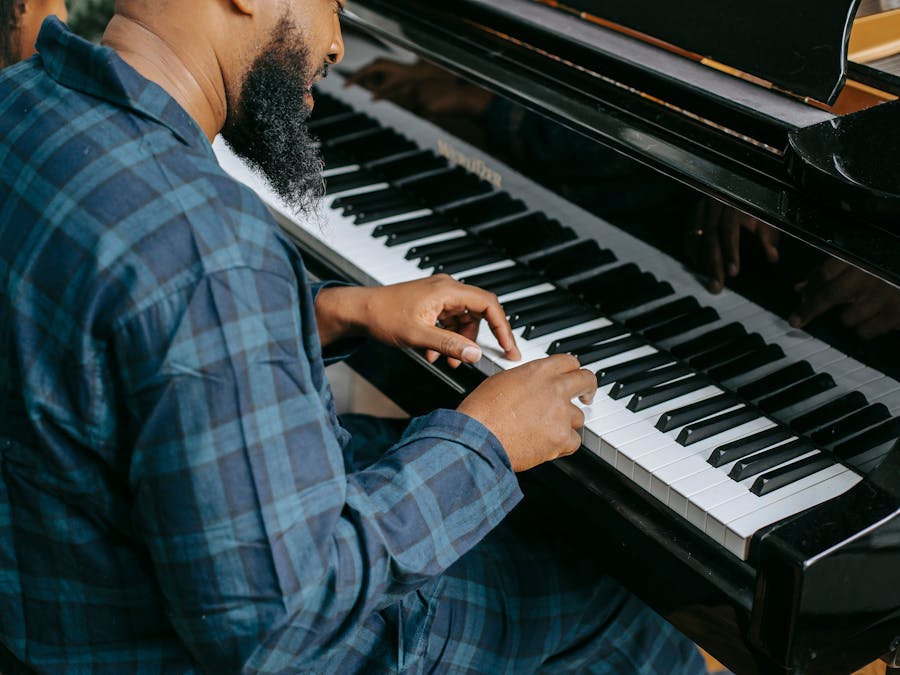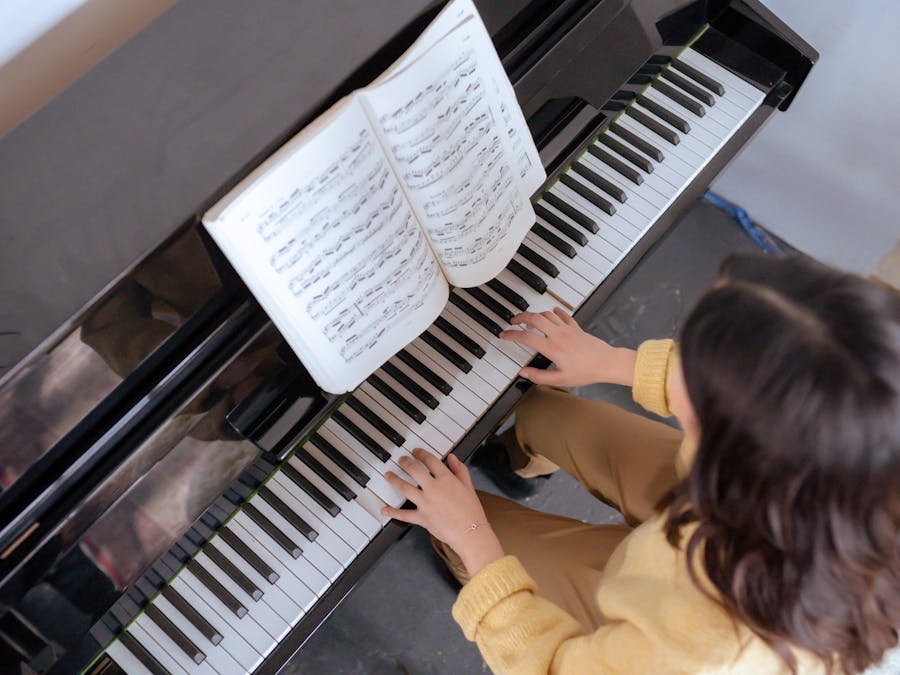 Piano Guidance
Piano Guidance
 Piano Guidance
Piano Guidance

 Photo: Charles Parker
Photo: Charles Parker
once a week How often should piano lessons be? Piano lessons are typically done once a week. This is the universal standard for most piano teachers. Having a week between lessons allows the student to practise the material at least a few times before the next lesson.

The tone is pure, perfectly pitched, and decorated with her idiosyncratic breathiness and well-controlled vibrato. You'll hear she has impeccable...
Read More »
C major and G major, along with their relative minor counterparts A minor and E minor, are often considered the best key and scales for Pop music.
Read More »Thinking about taking piano lessons? This article will answer the questions How Often Should I Take Piano Lessons, and help clarify your decision before hiring a good piano teacher. How often should piano lessons be? Piano lessons are typically done once a week. This is the universal standard for most piano teachers. Having a week between lessons allows the student to practise the material at least a few times before the next lesson. This ensures that the material is well integrated before anything new is taught. Time between lessons also allows the student to develop good practise habits, which is just as important as the lesson itself. Is one piano lesson a week enough? One piano lesson a week is enough for most people. In some cases, more than one lesson per week can be recommended. For example, a second lesson could be used to cover certain complimentary topics such as music theory, music history, or even piano technique. In other cases, students may have difficulty working on the material on their own. This may be due to a lack of discipline, or it could be because of a learning disability or concentration issue. In these cases, a second weekly lesson can be used to review the material that was covered in the first. It can also serve to reinforce good practise habits in the student. How long should music lessons be? The average music lesson is one hour. This provides the ideal amount of time for a music teacher to cover the lesson material, answer questions and allow the student to practise the material. This length of time is ideal for adults, teenagers and certain determined kids. Most music schools also offer 30 minute or 45 minute options. A 30 minute music lesson is ideal for kids under the age of 12. Although some kids can handle a 1 hour lesson, most do not have the proper attention span or motivation and will get distracted before the lesson is over. A 45 minute music lesson can be a great option for students aged 10 and older. It also provides a less expensive option for the price conscious shopper, and still provides a decent amount of lesson time. How many lessons does it take to learn piano? First you need to determine what your goal is for learning piano. For example, if you are a beginner and your goal is to become proficient at reading music and playing simple repertoire like Amazing Grace, Au Claire de la Lune, or Jingle Bells, then most piano students can get there in 4 to 12 piano lessons. This is the equivalent of 1 to 3 months of piano lessons. If your goal is to become a high level jazz or classical pianist, then it will take years of training under the guidance of renowned piano teachers. According to a famous study by psychologist Anders Ericsson, elite musicians in the most prestigious music academies in world, practised their instrument on average 10 000 hours before reaching an elite level. That’s around 3 hours a day for 10 years. Important factors that will influence piano learning speed are age, inherent musical ability, practise habits and overall motivation.

Or you could look into the small Yamaha GB1K Baby Grand Piano, starting at $14,999 – $19,179.
Read More »
The most important chords to learn in every major key are the I, IV, V, and VI, or the first, fourth, fifth, and sixth chords. That is because...
Read More »Studying piano has also been shown to amazingly improve memory — particularly verbal memory — and build good habits like focus and perseverance, diligence and creativity. Children who had a few years of piano study under their belts could remember twenty percent more vocabulary words than their peers.

What does Alt + R do in Microsoft Word? The Alt+R keyboard shortcut in Microsoft Word activates the Ribbon's Review tab. After utilizing this...
Read More »
We answer this burning question with help from National Geographic and American Profile. Pronounced also as “Yarrr!” and “Arg!”, the word “Arrr!”...
Read More »
Physical changes in the brain Learning to play an instrument increases motor control, listening, memory (especially of audio information). The...
Read More »
Thus, the most common secondary chord, the dominant of the dominant, is written "V/V" and read as "five of five" or "the dominant of the dominant".
Read More »